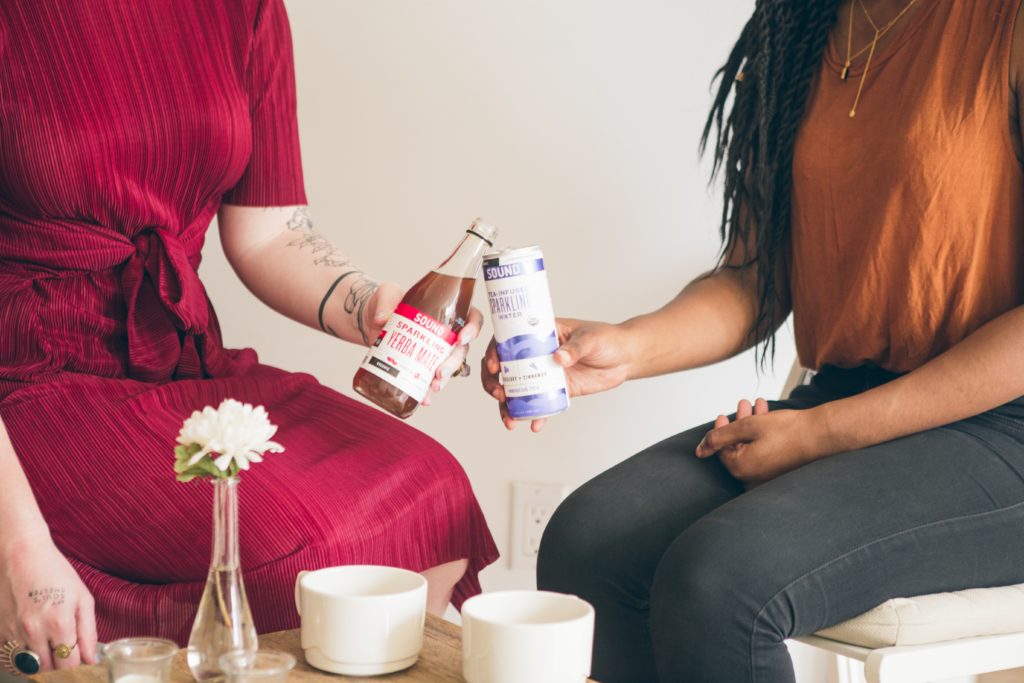Sober October—Health Benefits, and Tips For Making it Through
From the final week of Oktoberfest, through that spookiest of holidays, Halloween, October offers many opportunities to share drinks with friends. It might surprise you, then, to learn that many people have started taking this month off from drinking. Sober October has joined Dry January as a chance to take a break from alcohol.
While this may seem intimidating, taking a “dry month” like Sober October can give your mind and body a much-needed rest. And with proper care and planning, it might be easier than you think.
Let’s look at some of the health benefits of Sober October—and some useful tips for getting through it.
Dry Months: A Popular Way to Reclaim Control
The idea of taking a “dry month” began to gain traction in 2013, after a UK-based group promoted Dry January as a way to raise awareness of alcohol consumption. Year by year the trend has grown: In 2021, 13 percent of U.S. adults in one survey said they planned to participate.

The popularity of Dry January has led to the birth of several other monthly campaigns, including Sober October. One benefit of these “dry months” is that organizations can use them as fundraisers for charitable causes. This gives participants an additional motivation, and a good excuse for turning down a drink. How many people would peer-pressure someone to abandon a fundraising drive to fight cancer?
But even beyond this, Sober October has many upsides for those who participate. Among these is a big improvement in health and well-being.
The Health Benefits of Sober October
It’s no secret that drinking can cause or contribute to numerous health problems—even without factoring in impaired driving and the high number of alcohol-related accidents. Alcohol abuse can increase your risk of heart disease, liver disease, hypertension, diabetes, pancreatitis, immune system dysfunction, and several forms of cancer. It can also contribute to chronic inflammation, which is a major cause of long-term health issues.
That’s quite a list, and some of these trends can take time to reverse themselves. However, taking a month off from alcohol can give your body a chance to rest and recover.
Significant health benefits of Sober October can include:
- Improved nutritional intake – Alcohol can interfere with the absorption of critical nutrients such as vitamin B1. Your digestive system may work better during Sober October.
- More satisfying sleep – Alcohol can reduce the depth of your sleep, and disrupt normal REM cycles. You may be surprised how good a month of sober rest feels.
- Healthier vital signs and organ function – Research has shown that a month of alcohol abstinence can reduce insulin resistance, blood pressure, and growth factors that contribute to cancer formation.
- Stronger disease resistance – Since regular drinking appears to impair immune function, you might enjoy a welcome boost in disease resistance during Sober October.
- Clearer thinking – A month of sobriety can eliminate the “foggy” effect that routine drinking has on your thought process. For some, it can feel as if a cloud has miraculously lifted.
- Better control over weight and physical fitness – Alcohol adds empty calories to your body. By steering clear of it throughout October, you may lose a few pounds. You may even feel more energized when you work out.
And it doesn’t stop there. Beyond your health, Sober October has many other potential benefits—including financial ones. You may find that the money you save by not buying drinks at restaurants or bars can be spent on self-care items, such as a massage or a personal training session at your gym. This can have a ripple effect on your overall quality of life.
Finally, staying sober for a month can help you break your regular drinking habits. You may find it easier to moderate your drinking once you resume, or even decide to stick with sobriety.
Tips For Getting Through Sober October
If the above benefits of Sober October sound appealing, the next step is to try it! Of course, this can be easier said than done. There are many opportunities for social drinking in October, and depending on your habits around alcohol it can be hard to make a change.

Some strategies for navigating this include:
- Choosing nonalcoholic beers at Oktoberfest-themed celebrations, or football parties
- Participating in Halloween activities that don’t involve alcohol (such as hayrides, haunted houses, and treat-or-tricking with your kids)
- Hosting your own Halloween party, with an emphasis on tasty, creative, nonalcoholic “mocktails” that express the spirit of the holiday
- Coming up with a firm, but respectful answer for when you are offered alcoholic beverages at social events.
- Keeping track of your progress in a journal or on a calendar. This is also a place where you can hold yourself accountable if you notice particular challenges (like the weekends).
- Forming a group with others—whether on social media or via text—for mutual support in staying sober throughout the month.
- Exploring nonalcoholic beverages, like alcohol free ciders, beer, and wine. The alcohol-free beverage industry has grown so much in the past few years, with large brands like Heineken—and even specialty breweries—offering attractive alternatives.
Additional Help For Avoiding Alcohol
Even with these practices in place, Sober October may prove difficult. Every person is different, and it can be hard—or even dangerous—for some people to stop abruptly. Quitting alcohol “cold turkey” can cause withdrawal symptoms for those who drink heavily (14 or more drinks per week for women, 21 or more drinks per week for men). So, if you think you may be dependent on alcohol, speak with a medical professional beforehand to safely decrease or stop your alcohol use.
Even if you aren’t alcohol dependent, it can still be hard to stick with your goals. In some sense, discovering this can be another benefit of Sober October—giving you greater awareness of your relationship with alcohol. If, at the end of October, you find that you didn’t achieve your goal of 31 consecutive days of sobriety, don’t be too hard on yourself. Reflect on the days you were successful. You can always try again the following month with some additional support.
Ria Health’s online program is one great way to do this. Regular meetings with a coach, prescription medications, and digital tracking tools can give you the edge you need to go alcohol-free for the month. Best of all, it’s all accessible from your smartphone. Get in contact with us today to learn how we can support you through Sober October, and beyond!
Will insurance cover treatment? Verify Coverage
Have Questions? Call (800) 504-5360



